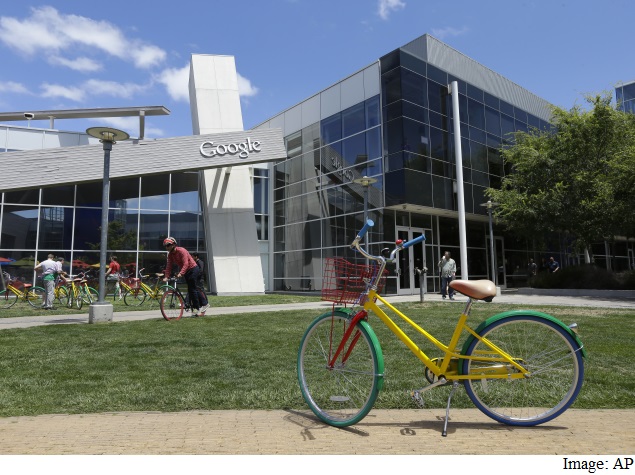- Home
- Internet
- Internet News
- FTC Report Recommended Charges Against Google
FTC Report Recommended Charges Against Google

The 2012 report, from the agency's Bureau of Competition, said that the agency should sue the Internet search company for anti-competitive practices, according to several people who saw the report but would speak about it only under the condition of anonymity. At least one other staff report, they said, recommended not pursuing a lawsuit. In early 2013, the agency unanimously voted not to bring charges after an investigation.
Google's critics and competitors on Thursday jumped on the news, first reported by The Wall Street Journal, arguing that the FTC had failed to take appropriate action. They called on Europe, which is now looking into the company's practices, to pursue tough regulations.
Yelp, which is a top Google competitor for consumers searching for restaurants and other local businesses, has long accused Google of abusing its dominant search position to elbow out competitors and push its own products instead. On Thursday, Yelp doubled down on those assertions.
"This shows the FTC had direct evidence of intentional search bias by Google," said Luther Lowe, Yelp's vice president for public policy. "With the FTC agreeing to a weak settlement against the recommendation of professional staff, this anti-consumer behavior has been effectively greenlighted in the United States."
Matthew J. Reilly, a partner at Simpson Thacher who worked for 13 years in the FTC's Bureau of Competition until 2012, said it was rare for all five commissioners to vote against a recommendation from that division.
"It's really remarkable the staff recommended issuing a complaint, and the commission not only disagreed but allowed Google to issue a letter saying 'we won't do it again,' rather than enter into a consent decree," Reilly said.
Sections of the document were mistakenly released to The Wall Street Journal by the agency as part of a Freedom of Information request. A spokesman for the agency called the release of the documents unfortunate, but declined to respond about their contents.
Jon Leibowitz, the chairman of the FTC at the time, also declined to comment.
"Speculation about potential consumer and competitor harm turned out to be entirely wrong," Kent Walker, Google's general counsel, said in a statement. "Since the investigation closed two years ago, the ways people access information online have increased dramatically, giving consumers more choice than ever before."
In 2013, the agency said that the company updated its search results to benefit users, not to thwart rising competitors, though the agency did also have the company agree to make some changes to how it ran some of its search advertising.
Leibowitz said at the time, "While not everything Google did was beneficial, on balance we did not believe that the evidence supported an FTC challenge to this aspect of Google's business under American law."
The report could raise questions about the current agency leadership. Three of the five commissioners from that time are still at the agency, including Edith Ramirez, who is now chairwoman.
After the FTC made its decision on Google, Microsoft, one of Google's top rivals, called it "a missed opportunity" that was "weak and - frankly - unusual."
Internet search is one of the most lucrative businesses in the history of technology and is, for most people, the main gateway to the Internet. Search advertising is expected to bring in $26 billion in revenue this year, close to half of the entire digital ad market, according to eMarketer.
Google is expected to claim about 72 percent of that pie, but its long-held contention that competitors are "only a click away" is starting to look truer now than when the FTC made its decision. Google's share is projected to drop to 66.7 percent by 2016, eMarketer projects.
Still, Google's dominance has put U.S. technology companies in the strange position of being openly envious about Europe's much tougher regulators. A long-running antitrust inquiry in Europe is looking into accusations by rivals like Microsoft that Google has used its dominant position in the search engine market to throttle competition.
The inquiry has expanded from examining just Google's online search business to including Android, the company's mobile phone operating system.
And on Thursday, Lowe from Yelp said the FTC's weaker stance on Google "is why Europe's investigation of Google has so many U.S. companies' support and why an unprecedented coalition of U.S. and European companies came together with civil society organizations to launch Focus on the User."
Focus on the User is a website that analyses Google's search results to try to show that Google stacks its search results to favor its own products.
© 2015 New York Times News Service
Catch the latest from the Consumer Electronics Show on Gadgets 360, at our CES 2026 hub.
Related Stories
- Samsung Galaxy Unpacked 2025
- ChatGPT
- Redmi Note 14 Pro+
- iPhone 16
- Apple Vision Pro
- Oneplus 12
- OnePlus Nord CE 3 Lite 5G
- iPhone 13
- Xiaomi 14 Pro
- Oppo Find N3
- Tecno Spark Go (2023)
- Realme V30
- Best Phones Under 25000
- Samsung Galaxy S24 Series
- Cryptocurrency
- iQoo 12
- Samsung Galaxy S24 Ultra
- Giottus
- Samsung Galaxy Z Flip 5
- Apple 'Scary Fast'
- Housefull 5
- GoPro Hero 12 Black Review
- Invincible Season 2
- JioGlass
- HD Ready TV
- Laptop Under 50000
- Smartwatch Under 10000
- Latest Mobile Phones
- Compare Phones
- Samsung Galaxy A07 5G
- Vivo Y500i
- OnePlus Turbo 6V
- OnePlus Turbo 6
- Itel Zeno 20 Max
- OPPO Reno 15 Pro Mini 5G
- Poco M8 Pro 5G
- Motorola Signature
- Lenovo Yoga Slim 7x (2025)
- Lenovo Yoga Slim 7a
- Realme Pad 3
- OPPO Pad Air 5
- NoiseFit Pro 6R
- Xiaomi Watch 5
- Acerpure Nitro Z Series 100-inch QLED TV
- Samsung 43 Inch LED Ultra HD (4K) Smart TV (UA43UE81AFULXL)
- Asus ROG Ally
- Nintendo Switch Lite
- Haier 1.6 Ton 5 Star Inverter Split AC (HSU19G-MZAID5BN-INV)
- Haier 1.6 Ton 5 Star Inverter Split AC (HSU19G-MZAIM5BN-INV)
















